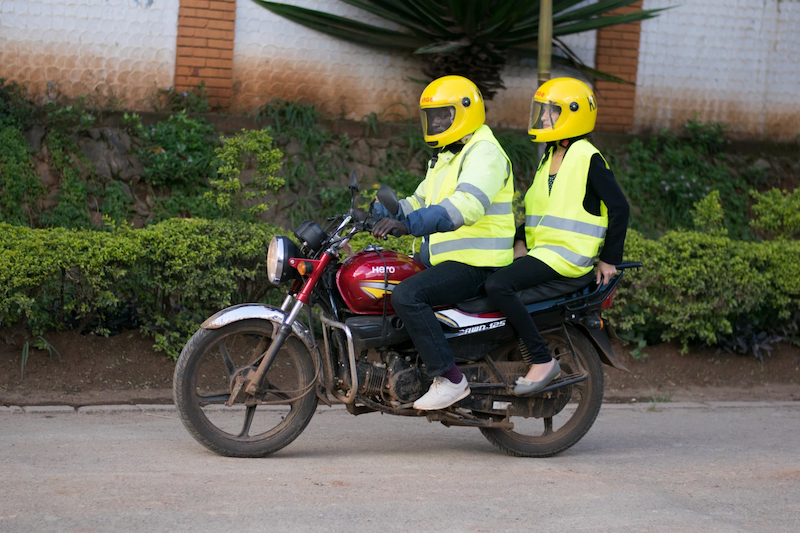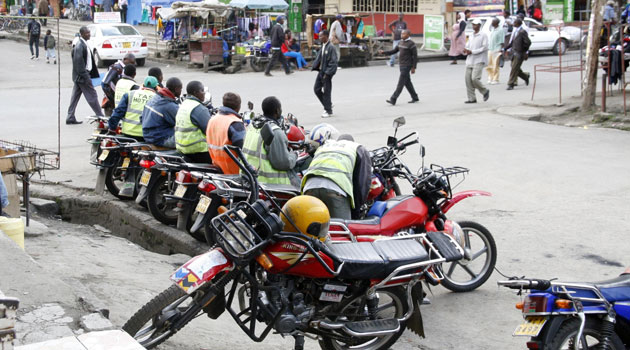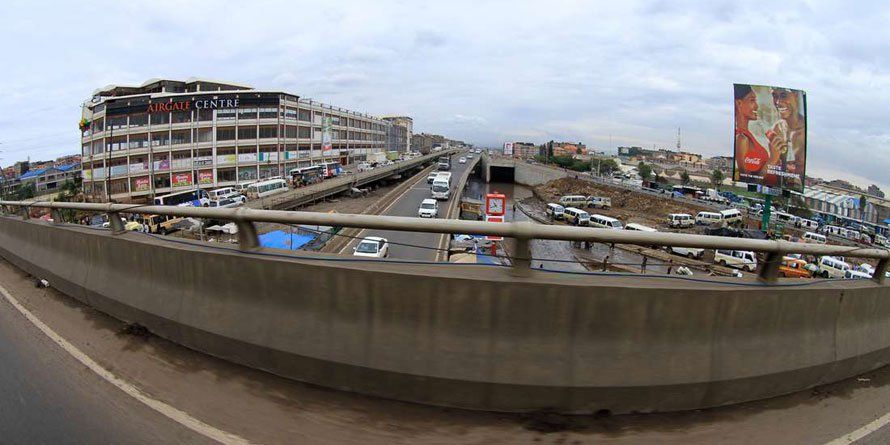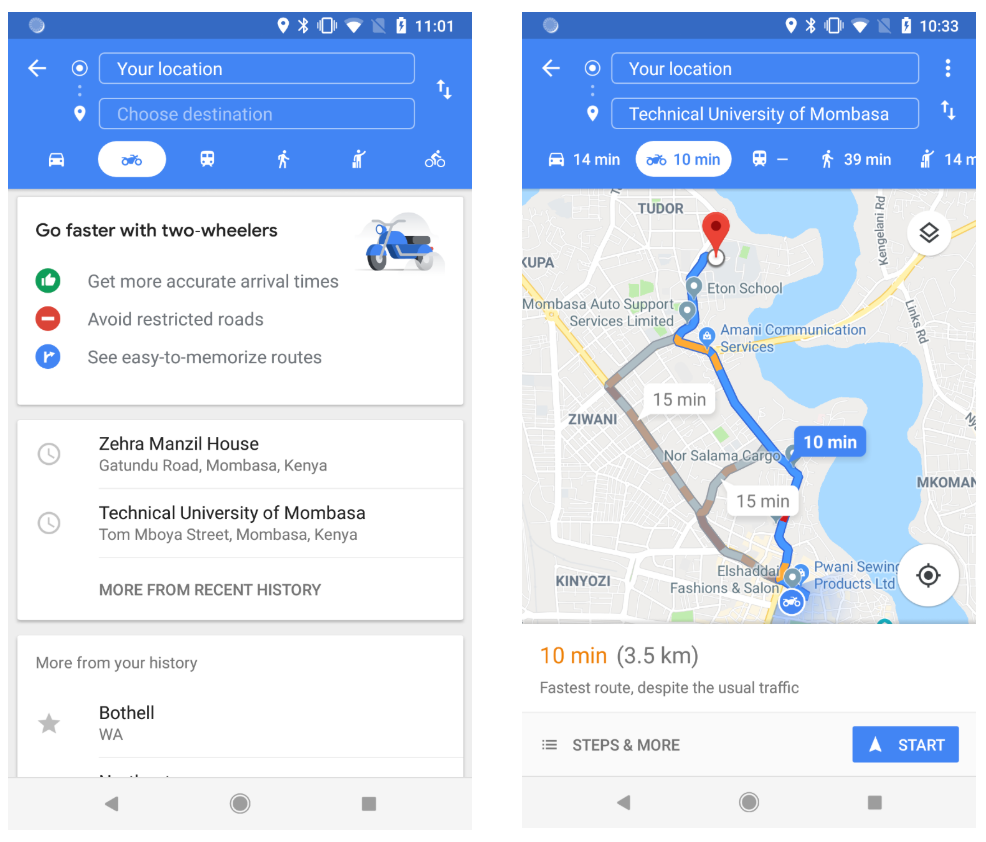How significant is Google Maps' motorcycle mode to Kenya's transportation system?
The motorcycle (Boda boda) sector in Kenya is a multi-billion dollar one, however, they are plagued by frequent accidents (11% of the total number of road accidents). One of such causes is unfamiliarity with the road, Google Maps' can solve that.

Nairobi, KE and Lagos, NG — Google Maps' motorcycle navigation mode launched in Kenya making it the first country in Africa to have that feature enabled.
During the Google for Kenya event on Monday, October 15, Google announced that their motorcycle mode on their Maps' product has now been made available to users in Kenya (targeting the boda boda sector).
The motorcycle feature will have the same maps functionality as the other four-wheeled automobiles which includes; turn-by-turn prompts and voice navigation.
However the catch is that navigation on motorcycle mode uses landmarks not street names for directing users. For instance, assuming it was present in Lagos, Lagosians would hear things like "turn right at National Stadium", as opposed to the street name in Surulere, Lagos. Also, motorcycle mode would show "shortcuts" inaccessible to cars.
But why did Google go to Kenya first in Africa? Or instead what is it about Kenya and the transportation system there that makes it attractive to investors and businesses like Google?
To answer this, we spoke to a Kenyan who also contributed to this reporting.

What is transportation like in Kenya?
Private players dominate Kenyan transport. Matatus (minibuses and buses) and Boda bodas (motorcycles) are used to transport millions of Kenyans on a daily basis.
Due to urbanisation, Boda bodas have been thriving in the rural areas which are typical for having impassable roads (untarred and rough). Plus there is little human traffic to warrant the need for a bigger locomotive (e.g. buses).
Rapid urbanisation in Kenyan cities combined with a slower road infrastructure development has led to pathetic traffic in Nairobi, the countries capital.
As of June 2018, Nairobi was one of the world's top ten cities with the worst traffic situation. To provide context, the "congested" Lagos state of Nigeria notorious for its critical traffic is not even the list. As a result, boda bodas have stepped up to become the preferred transport means for working class Kenyans in a hurry. However, they tend to be more expensive in the cities, when compared to the matatus.
In 2016, it was estimated that the time (productivity) and fuel expended in traffic in Nairobi could generate Ksh 2 billion ($19 million).
To learn more about Matatus watch this documentary by CNN.
The two-wheel automobile sector is booming in Kenya: Boda Boda
Boda bodas are motorcycle-taxis. The word originates from “border-border” which was a form of transport between Kenya and Uganda (two East-African countries sharing a border) using bicycles. Over time, bicycles have been phased off, and motorbikes have taken over. Enter Boda boda.
The boda boda sector in Kenya is a multi-billion dollar one. The Motorcycle Assemblers Association of Kenya (MAAK) estimated annual revenues of Ksh 219 billion ($2.17 billion) in 2017 which was more significant than Safaricom's – the largest telco in Kenya – earning for the same financial year.
Investing in Boda bodas are more profitable than the Kenyan bus alternative – Matatus. Daily, each boda boda takes home Ksh 1,000 per day, compared to the Ksh 3,500 that 14-seater matatus. Literally speaking, one seat on a matatu is worth Ksh 250 for an entire day, while on a boda boda it's worth Ksh 500. From a Return-on-Investment (RoI) point-of-view, investing in four motorcycles making 1000 per day is more profitable than one bus making 3,500 a day. Four motorcycles cost only Ksh 480,000 while just one 14-seater bus cost Ksh 2,500,000. We could go on and on to analyse the payback period, but from the calculations above it becomes clearer how an investment in a boda boda is more profitable than a matatu.
The Boda boda sector impacts a vast amount of Kenyans daily. There are about ten Kenyans directly reliant on one boda boda for their daily transportation needs. As of 2017, there were at least 600,000 boda bodas operating and 4.8 million people in Kenya making use of it daily.
A growing need cum challenges
Sales of motorcycles in Kenya grew by 87% between October 2016 and 2017 to 159,100 (average 13,258 per month). By December 2017, there were 14,013 registered vehicles.
The swell in motorcycle growth has also been noticed by ride-hailing services like Uber and Taxify, who have customized their products to allow riders to hail a boda boda in Nairobi or even a three-wheeled tuk-tuk in Mombasa. – Quartz Africa
Despite the increasing need for boda bodas in the region – fueled by their affordability and swiftness, there are accompanying challenges. One of which is failing adherence to road regulations which has led to several accidents.
According to Kenya's National Transport and Safety Authority (NTSA), motorcycle crash victims made up about 11% of the total number (11,062) of road accident victims between Jan 1 – Dec 28, 2017.
NTSA cited speeding, reckless driving, dangerous overtaking, drunk driving, drunk riding, motorists using unfamiliar roads during weekends and lack of use of helmets as causes of accidents.
How can Kenya’s traffic problems be solved?
Kenya’s traffic congestion can be solved by an intensified Public-Private-Partnership. The Government should build and deploy durable road networks, and bigger privates should deploy infrastructural services that aid proper street labelling and addressing systems. While smaller companies (startups) should design innovative transportation means to suit the growing Kenyan population.
In 2016, the Kenyan Ministry of Information, Communications and Technology announced that the Government is set to establish a National Addressing System (NAS) that will assign streets and building names and numbers countrywide for ease of identification. However, how far they have gone remains unclear.
Likewise, the Government is reported to be improving road infrastructure by expanding highways and building alternative routes which would help restrict the number of vehicles that have to pass the Central Business District to their final destination. These constructions have undoubtedly helped as the average time spent on one-way journeys in traffic reduced by 16.24% in three years.

The traffic situation is set to get better with more road project completions and better urban planning.
The role of Google Maps, as a product and an enabler
One of such bigger privates that have played a role at improving Kenya's road network is Google via their Maps platform. Alongside the new motorcycle mode, Google has deployed a Street view for commuters to have an immersive experience of the streets and places they'll like to visit in Kenya.

To do this, they had to use a street view trekker which helped in digitising information about street names and addresses.
Meanwhile, startups like OkHi have built on Google Maps GPS technology to enable Kenyans easily broadcast their location even without knowing their physical address. This innovation is useful not just to individuals trying to help their friends find their houses, but also to delivery companies, emergency services and ride-hailing firms who rely on map data to carry out their business. Founded four years ago, OkHi has raised $750,000 from a seed funding round and are now focusing on attracting ride-hailing companies to use their services.
Learn how it works from this CNN feature.
In conclusion, as we have seen above, an accurate Google maps' motorcycle mode could be the best thing to happen to Kenya judging off the impact boda bodas have on the lives of Kenyans. By extension, we expect Google maps' to activate other densely populated cities where citizens rely heavily on motorcycles to move around. Already, this feature has been made available to several Asian markets with even bigger two-wheeler markets. Like India, Hong Kong, Indonesia, Malaysia, Myanmar, the Philippines, Singapore, Taiwan, Thailand, and Vietnam.
Could Nigeria be next for Africa?
It probably won't. Egypt would, going by the traffic data on Numbeo. We wait.





